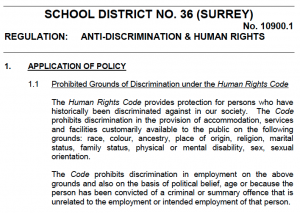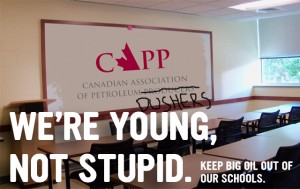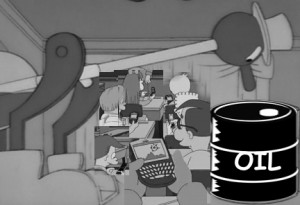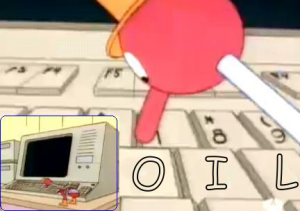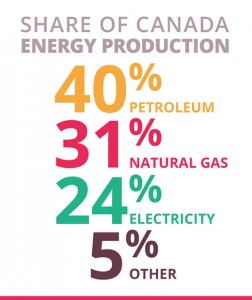Truthout contributor, director of Truthout’s Public Intellectual Project and Board member Henry Giroux responded on June 10, 2013, to questions concerning varieties of pedagogy and fundamentalism, markets, and the prospects for public schools raised by his latest book: America’s Education Deficit and the War on Youth
Leslie Thatcher for Truthout: Didn’t teachers open themselves up for attack when they used the agency acquired through strong teachers’ unions in the service of self-interest rather than modeling critical pedagogy? And hasn’t that begun to change? How would you contrast the real versus the ostensible goals of education “reformers”? What has to happen now? And concretely, what must each of us do?
The narrative about the contemporary assault on public schools doesn’t begin with the failings of public schools. One can’t even talk about them in such monolithic terms; some are outstanding and some are a disgrace, which is largely the result of a funding structure that has always been deeply unequal. But a critical understanding of the current war on public and higher education might begin in the seventies when right-wing billionaires and ideologues decided that the biggest problem with public schools was not that they were failing – but that they were public. The so-called new “reformers” are really radicals who want to transform the entire structure of public and higher education to serve elite, corporate and military interests. The project that informs their understanding of education is anti-humanistic, unjust, iniquitous and authoritarian in its attack on all things public, which also includes public servants such as teachers and especially teachers’ unions. The so-called new “reformers” are thoroughly ideological, politicized and market-driven missionaries who camouflage their intentions and their interests by advancing elements of a progressive discourse to push their deeply conservative agenda. Terms like “freedom,” “choice,” “equity” and “democracy” are emptied of meaningful content and bandied about in order to promote the neoliberal script of privatization, standardization, high stakes testing, commodification and unchecked competition. The new reformers are reactionaries who assume the posture of committed, avant garde patron saints of educational renewal. But in reality they are a new breed of philanthro-capitalists looking to dictate the educational experiences of entire generations of students – their aptitudes, their competencies, their consciousness, their aspirations – and make a lot of money at the same time. They are as disingenuous as they are backward looking. The new “reformers” are, in reality, pushing an old right-wing attack on schools and teachers. According to them, teachers are the problem because they lack accountability and unions promote a self-interested bureaucracy. Underlying this claim is a refusal to address how larger structural issues such as racism, income inequality and exploding poverty impact on school failings or how they should be reformed in light of these forces. Fixing public education is reduced to bashing teachers, unions, public servants, and funneling taxpayer money “away from the public school system’s priorities (hiring teachers, training teachers, reducing class size, etc.) and into the private sector (replacing teachers with computers, replacing public schools with privately run charter schools, etc.).”(7) The alleged new “reformers” are in reality a mix of conservative billionaires, hedge fund managers, bankers and right-wing ideologues that constitute an anti-public education movement that has produced “just another get-rich-quick scheme shrouded in the veneer of altruism.”(8)
Unlike current “reformers,” those who advocate egalitarian reforms – who promote education as the practice of freedom – are well aware that if public schools are going to improve, they have to be defined and appropriately funded. Such schools should serve as laboratories of democracy, critical and accommodating spaces where young people have access to the expertise, skills and experience that both deepen their understanding of history, the arts, sciences – of humanistic traditions and archives in general – and the new world of advanced technologies, digital communications and screen culture. The acquisition and mastery of such diverse technologies, knowledge and skills are important not only so young people can find meaningful work but also so they can determine judiciously and rigorously their appropriate and inappropriate uses. In short, so they can rise to the level of critical and engaged citizens of the world.
Public schools must be defended as public goods that benefit not just individual children and their parents but an entire society. Critical reformers must also fight to protect teacher autonomy, struggle for equitable modes of financing, and recognize that any talk about improving schools under conditions of alleged austerity has to include an analysis of the failed domestic war on drugs and the wars abroad and the devastating effects they have had on such basic social services by diverting funds from public schools and increasingly criminalizing the behavior of low-income white and poor minority students. True reformers have to fight against the neoliberal onslaught on teachers, unions, curricula, diverse modes of accountability, and reclaim democratic values and civic education as crucial for creating quality public schools. The most important starting point for creating genuine educational reform is the necessity of acknowledging that the crisis of education cannot be separated from the war on youth, the rise of the neoliberal state, the war on terrorism, and the ongoing financialization and militarization of the entire society. To not understand these basic connections is to misrecognize the real drivers in shaping currently proposed changes and misdiagnose meaningful educational reform. Those market and corporate forces that now undermine public education in the name of fixing it have little to do with democracy and critical teaching and learning, except to weaken both as part of a larger corporate restructuring and militarization of public education as a securitized, profit-based entity. Battling against those forces clearly puts one on the side of genuine educational reform.
In strategic terms what would this mean? In my view, genuine educational reform should begin with rejecting the financing of schools through local taxes, which is fundamentally out of step with the funding models for public education in every other advanced, industrialized nation. Moreover, the struggle over the proper funding of public education should coincide with the struggle for smaller schools and classes, more resources, and more full time quality teachers – which would also entail a robust commitment to critical and comprehensive teacher education and so a rejection of its current debased state. Schooling is a public necessity that is as important as national defense and should be funded as such. Secondly, all attempts at the privatization and corporatization of schools must be rejected so as to make education truly public and widely accessible, removed from those who see it largely as another source of profits harnessed to corporate power. Schools must be defined as democratic public spheres and not simply as sites whose worth is determined by the morally truncated, narrow instrumental standards of measurable utility. Teachers need to work under conditions that provide them with the autonomy that enables them to take risks, be creative, and draw upon a range of educational approaches and pedagogies. Schools must be defined as sites of political and moral practice deeply involved in the production of democratic agents. Moreover, matters of vision, agency, and support should be connected to the struggle against those pedagogies of repression that reduce teaching to the imperatives of standardization and testing. We need modes of pedagogy that enliven the imagination, create thoughtful and curious students, incorporate an ethic of civic responsibility, and teach the practice of freedom. That means connecting pedagogy to the histories, experiences, and narratives that young people bring to any learning situation – the very educative contexts denied by the standardization juggernaut. Pedagogy should not mimic economic models with their reductionist worship of method, stripped of any sense of morality or social context. Instead, pedagogy should provide the conditions for students to invest in robust and critical forms of self and social agency. Pedagogy is not a neutral method, but a deeply political practice that is always connected to the acquisition of agency, a practice that demands that educators be vigilant about what identities are being produced under what conditions and for what purposes.
Critical educators, in concert with concerned citizens, need to raise the bar so as to demand modes of education in which teachers are knowledgeable and reflexive, function as agents of civic education, and create pedagogies that are provocative and illuminating in their ability to get students to come to terms with their own power as individual and social agents. Any viable mode of critical pedagogy must treat young people with respect and enable them to develop their own voice and sense of agency, and do so in an environment that is thoughtful, critical, humane and challenging. In the end, I think it is reasonable to argue, as I do in this book, that education at all levels is the fundamental precondition that makes democratic politics possible, provides a space where meaningful histories, voices and cultural differences can flourish, and enables students to grow intellectually and morally, reflect critically about their relationship with others, and interrogate thoughtfully their relationship with the broader society and the larger world. I make no apologies in arguing that the project that informs this book furthers the attempt to establish a connection between learning and social change, educate young people to be able to translate private troubles into broader social considerations, and create the pedagogical conditions for the development of a formative culture that expands and deepens the possibilities of a democratic society. The Education Deficit and the War on Youth is a call for educators and others to organize collectively both within and outside of schools to further develop the ideas, values and institutions necessary to sustain a world where justice prevails and individual and collective consciousness does not fall asleep.
Read More: Truthout
7. David Sirota, “It’s No Coincidence that the Public Education and Poverty Crises are Happening at the Same Time,” AlterNet (June 3, 2013). Online:http://www.alternet.org/education/us-department-education-releases-study-schools-and-poverty-rate
8. Ibid., David Sirota, “It’s No Coincidence that the Public Education and Poverty Crises are Happening at the Same Time.”

 Follow
Follow
